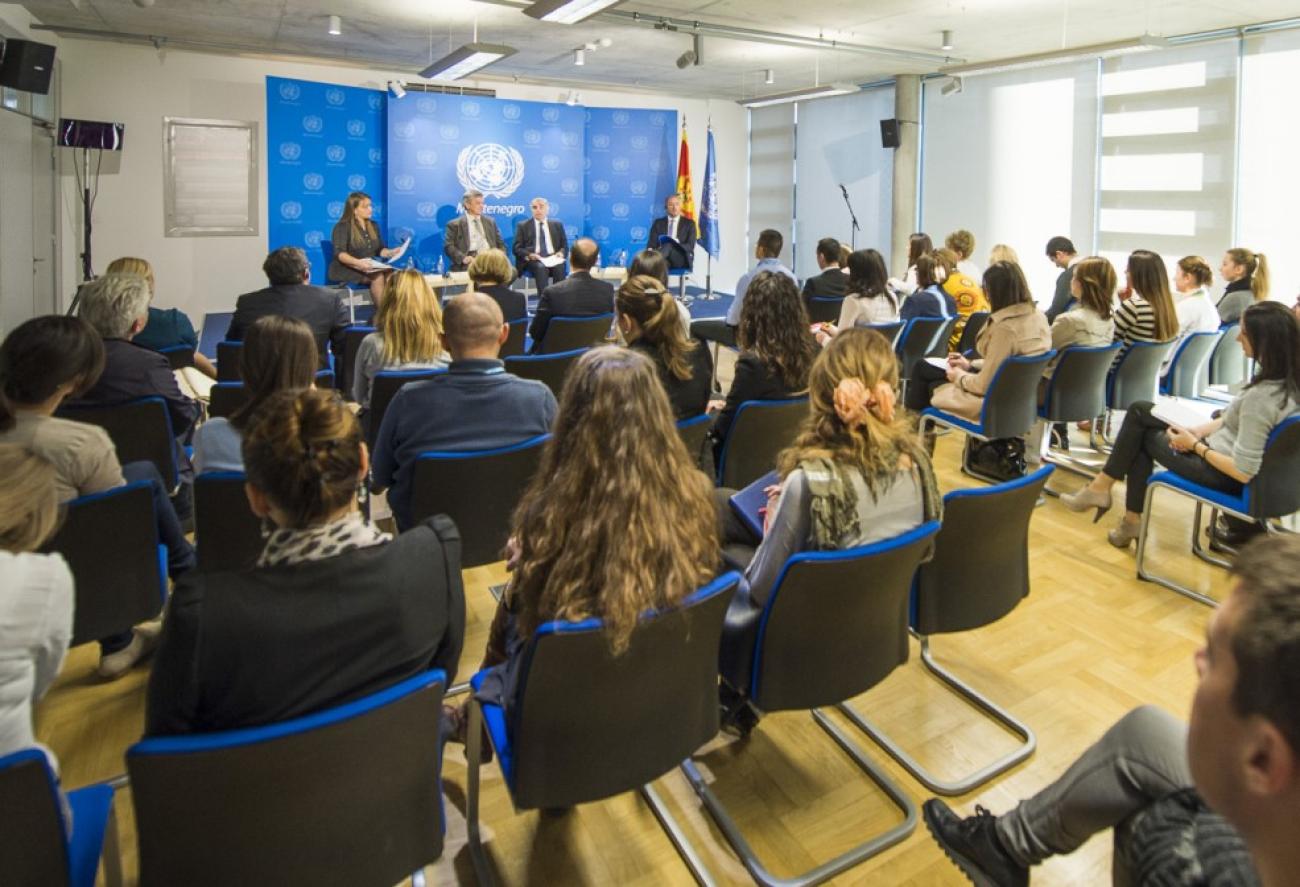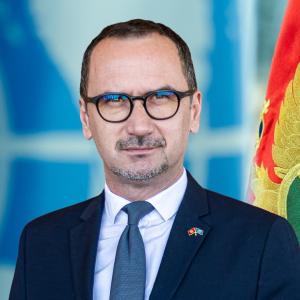The complexity of human rights has been explored from different angles at a panel discussion organized by the Ministry of Foreign Affairs and European Integration and the United Nations System in Montenegro on the occasion of the International Human Rights Day.
The discussion at the UN Eco House in Podgorica brought together strong national and UN specialists in this area – representatives of Government, NGOs, academia, international community and the Montenegrin Ombudsman. Through a dynamic discussion, participants discussed concrete areas and challenges of human rights advancement in Montenegro.
Pointing out that equality lies at the heart of human rights, Minister of Human and Minority Rights Suad Numanović reminded the audience at the opening of the event that the idea of human rights has been around for more than 2000 years.
The UN Resident Coordinator Fiona McCluney commended Montenegro for creating a strong legal framework which allows placing human rights at the heart of the country’s development. “Additional efforts are needed in the areas of rights of persons with disabilities, women from minority groups, LGBT community, full inclusion of Roma into society, shelters for victims of domestic violence,” said Ms McCluney, underlining the need for broadening the scope of perception of human rights. “Human rights are often associated with certain groups of the population. But human rights are not only about the LGBT community or just for those with disabilities, although those groups must be a special focus. Human rights are about peoples’ right to education, health, housing, clean water, decent work,” said McCluney.
Montenegro’s progress in human rights legal framework was also praised by one of the panellists, Ombudsman Šućko Baković, who also emphasized that the implementation of legal framework is a crucial segment. He also noted that Montenegro lacks full enforcement of human rights in many areas. “It is unacceptable not to enable access to people with disabilities in public institutions, health and education institutions, public transport,” said Mr Baković, who also referred to a number of cases to illustrate concrete mechanisms that could be employed to protect human rights.
“Human rights are often associated with certain groups of the population. But human rights are about peoples’ right to education, health, housing, clean water, decent work”
Fiona McCluney, UN Resident Coordinator in Montenegro
The debate was sparked off as the audience challenged the panellists on a number of issues, such as the monitoring of fulfilling Human Rights Council recommendations, prison torture, the link between corruption and human rights abuse, as all illustrated with specific cases of human rights violations.
“The importance of meeting international obligations in order to improve the situation of human rights is essential,“ said one of the panellists, Ambassador Milorad Šćepanović from the Directorate-General for Multilateral Affairs at the Ministry of Foreign Affairs and European Integration, who shared some of the highlights of Montenegro’s three-year membership in the Human Rights Council. “By being a member of the Human Rights Council, the country is continuously tested,“ said Ambassador Šćepanović underlining that “Montenegro made additional commitments though its membership and proved to be a reliable partner in overall human rights advancement“.
Both the panelists and participants from the audience exchanged views on a number of specific cases from the practice, indicating concrete weaknesses of the Montenegrin institutional system, but also noting a considerable progress compared to the earlier state.
“By being a member of the Human Rights Council, the country is continuously tested“
Ambassador Milorad Šćepanović, Directorate-General for Multilateral Affairs at the Ministry of Foreign Affairs and European Integration
The importance of defining responsibilities in the wide spectrum of human rights protection was underlined by another panellist - UNICEF Representative in Montenegro Benjamin Perks, who explained that the Government is a primary “duty-bearer”, who must ensure the respect for human rights of all citizens who are “right-holders” in this regard. Mr Perks also praised Montenegro for making progress in building a strong human rights legal framework in a short period of time, but particularly stressed the need for evidence-based policy making in the area of human rights. “Discussion on human rights cannot be based on instincts and opinions. It must be founded on credible evidence and facts,” said Mr Perks.
The panel discussion “Human Rights in Montenegro” at the UN Eco House was yet another effort to advance the quality of public debate on such an important and complex issue, by opening a space for all relevant sides to exchange views and arguments.



















